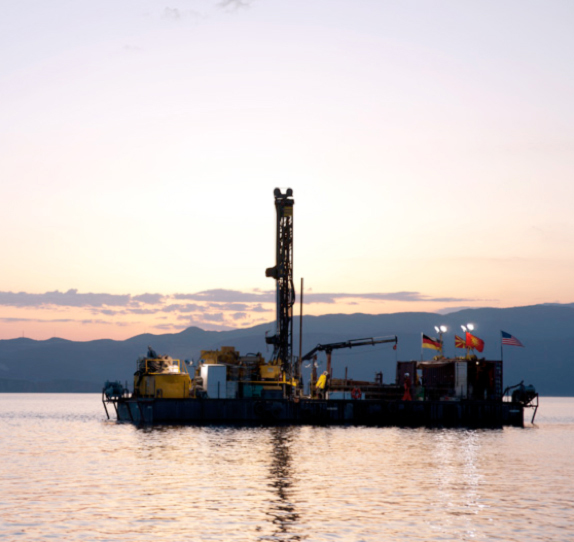Pure and Applied Quaternary Sciences (PAQS)
Surface processes in different settings; glaciology, paleoclimate and polar research; marine and limnogeology; humans as geological agents; engineering geology.
Information: Prof. Flavio Anselmetti (Bern), Prof. Anneleen Foubert (Fribourg) or Prof. Fritz Schlunegger (Bern)
» Surface processes in orogens and in their forelands
» Sediments as paleoclimate archives
» Paleoglaciology
» Geohazards (mass movements, earthquakes, tsunamis)
» Engineering geology
» Human impact on the environment

The Major in Pure and Applied Quaternary Science represents an integrated approach for training students in broad geologic themes including in particular earth-surface processes through Quaternary times. This focus includes sedimentology and the anthropogenic impact on earth surface processes, analyses and dating of sedimentary sequences to decipher climate and environmental change, actualistic glacial geological studies including polar areas, natural hazards and physical properties of unconsolidated rocks. This approach guarantees a fundamental education that will enable graduates to face everyday scientific and applied geologic challenges with a special focus on unconsolidated sediments.
Expected careers for Masters in Pure and Applied Quaternary Science are:
- Academic careers, through a sound preparation for PhD research in the fields of earth surface processes, palaeoclimate research, natural hazards, and geotechnics.
- Consultant companies working in the field of engineering geology, hydrogeology or natural hazards.
- Public agencies with responsibilities for environmental affairs such as landscape preservation and water protection.
- International insurance companies with strong interests in risk assessments of global climate change and natural hazards.
(30 ECTS in Module B)
Download list with PAQS master courses sorted by frequency (pdf)
MSc projects may include a large variety of field related projects and laboratory analyses, experiments in the laboratory, and field work in any sub-discipline of geology. Please see the list of currently available topics. Students may also inquire with instructors directly about any additional thesis topics that may be available.
(this list is updated in January each year)
MSc students have access to a wide range of modern analytical facilities at the host institute, including laboratories for cosmogenic nuclides, core scanning (petrophysical and XRF), geotechnical and petrophysical measurements, microbial analysis, optically stimulated luminescence, petrographic microscopy, cathode-luminescence, scanning-electron microscopy, X-ray diffraction, X-ray fluorescence, electron microprobe, Laser-Raman and FTIR spectroscopy, Laser-ablation-ICP-MS, fluid inclusion microthermometry, wet-chemical laboratories with atomic-absorption and ion-chromatography and mass-spectrometers for various isotope systems. A series of geophysical exploration systems are available for marine and lake surveys including reflection seismic and multibeam bathymetric surveying. A large set of coring devices are used for sediment coring and drilling. Computational facilities include state-of-the-art infrastructure incl. GIS applications and numerical modeling applications. Additional facilities are available at the collaborating research institutes.
Supervision of MSc thesis projects is carried out by a team with extensive experience in the field, including:
Prospective students for the Specialization in Pure and Applied Quaternary Sciences should contact one of the following professors for further information:
Prof. Flavio Anselmetti (Bern), Prof. Anneleen Foubert (Fribourg) or Prof. Fritz Schlunegger (Bern)